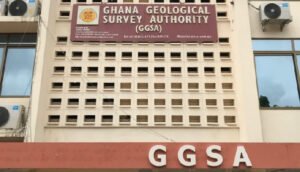
The Big Six
The nation yesterday remembered the sacrifices made by our founding fathers that culminated in our national independence from colonial rule.
The founding fathers, notably the Big Six, comprising Kwame Nkrumah, Joseph Boakye Danquah, Ebenezer Ako Adjei, Emmanuel Obetsebi Lamptey, William Ofori-Atta and Edward Akuffo-Addo, really appreciated what it meant to be a patriot.
They therefore put aside political dogma and ethnocentricity, and united in unalloyed love for Mother Ghana, as they engaged the colonialist government every inch of the way till victory was won on March 6, 1957.
While some of these patriots put in efforts like running a newspaper and footing Kwame Nkrumah’s bill from the US to Accra, others quietly engaged the colonial government over constitutional processes in line with the realities of the times and the sacred Bond of 1844.
Collective effort
Again, while we had relevant ‘political noise’ from some quarters, including the 28th February march by Second World War veterans, led by Sergeant Adjetey and his lieutenants, or Ga chiefs organising demonstrations and strikes, we additionally had affluent Makola women joining the fight together with merchants from the Central Region, building war chests in supporting the mission.
Indeed, we are also told that it was one such unsung Makola woman who housed Kwame Nkrumah in her residence in Accra Central.
Up till the eve of Independence Day, therefore, the driving force was largely unity across the country, including vibrant frontline activity by labour unions and traditional rulers under the leadership of the Big Six – all in the supreme interest of Ghana, rather than a personality or cult.
1969 and 1979
That sense of sacrifice and service in the interest of a united, rather than a divided Ghana, was also at the centre of the 1969 and 1979 elections, where candidates – whether presidential or parliamentary – stood on their own steam, without greed pushing people to dip fingers into the national kitty for political advantage.
And we may recall even secondary school heads vying for positions and picking seats, notwithstanding their meagre salaries and the size of constituencies then.
It was all about fair processes and, largely, competence, with the ‘affluent’ Peter Ala Adjeteys and Harry Sawyers of Greater Accra running on their own steam, in much the same way as school heads like Aboa Ayisi and others. That was the period when one had to be a community person, rather than a US or UK returnee with cash but without clout on the ground, to win elections.
Floodgates for abuse
The sanctimonious Provisional National Defence Council (PNDC) was supposed to have sustained a sanitised political turf because of its principles of probity and accountability, but it rather opened the floodgates for abuse of political power. That abuse was particularly found in political party financing, and culminated in successive governments engaged in direct and indirect funding on the wings of incumbency.
The situation now appears worse, when laws on funding of political parties, including Assets Declaration, are flouted, with those who are supposed to be implementing them looking the other way.
Back to our roots
It is the conviction of the Daily Statesman that as we celebrate Founders’ Day, we will be responsible enough in relishing the ceremonial ingredients in the historic events that led to our political independence.
We also need to recognise the fact that without the selfless sacrifices of the Big Six and other unsung heroes, Ghana may not have been where it is today.
If true leadership is worth celebrating, it is also important that our generation lives out that ingredient of sacrifice in national life. We should do this, particularly, in reducing profligacy and impunity in political life, while we consciously apply the rod in deterring errant officials who seek their personal comfort at the expense of our collective good.







